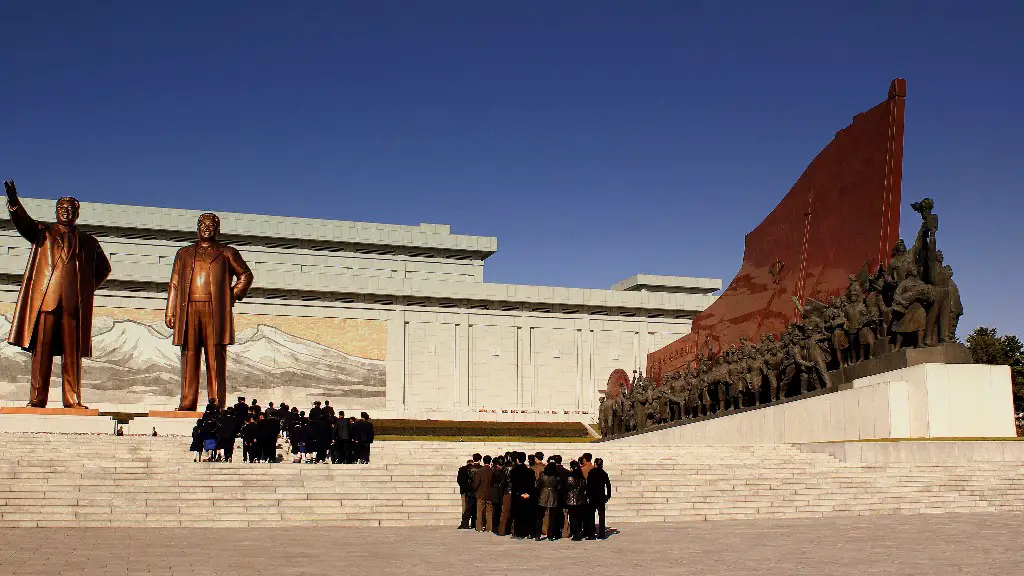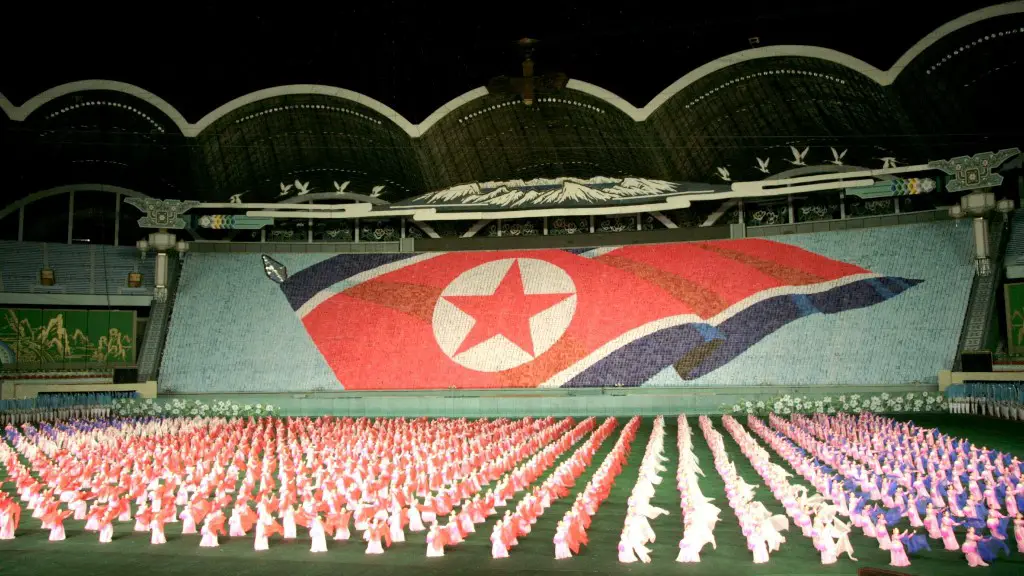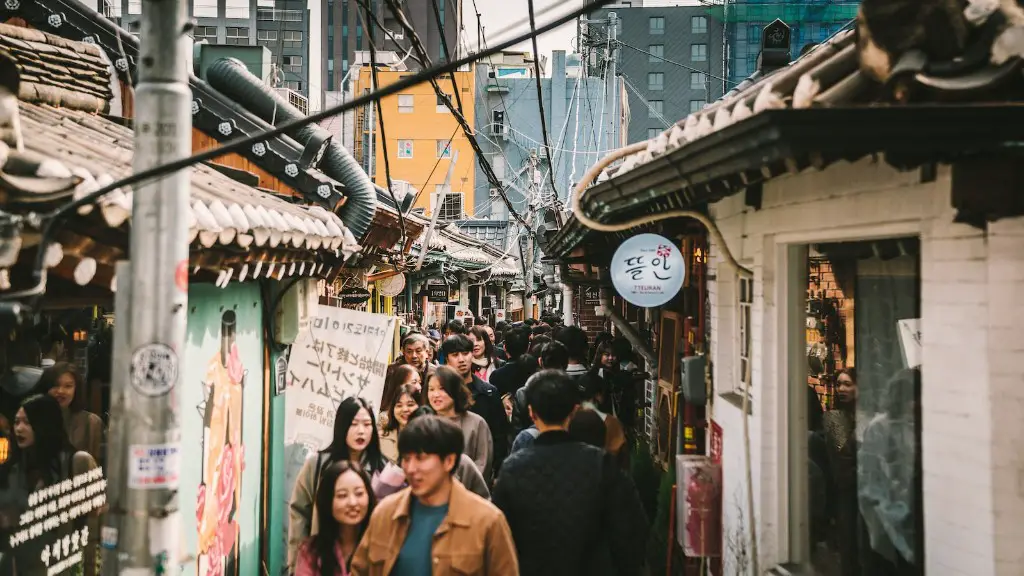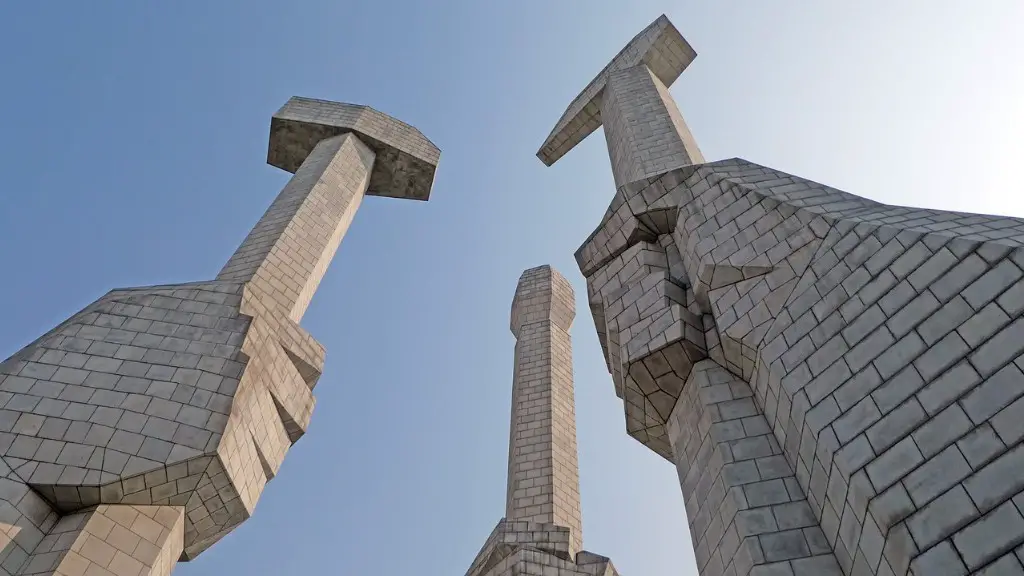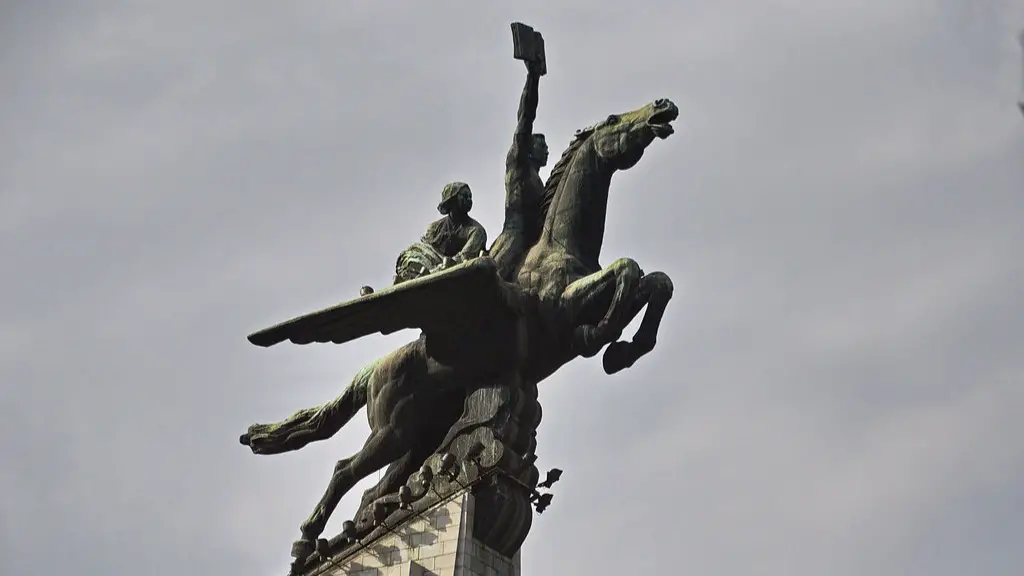No one really knows for sure what the answer to this question is since North Korea is such a secretive country. However, it is known that the government of North Korea is an atheistic state and does not promote any religion. There have been reports of citizens being arrested or even executed for being found with religious items. This would lead one to believe that the North Korean government does not believe in god.
There is no definitive answer to this question as North Korea is an atheistic state and does not officially recognize any religion. However, some experts believe that there may be a small number of people in North Korea who do believe in God, despite the government’s efforts to stamp out religion.
Is the Bible allowed in North Korea?
Christians in North Korea face persecution from the government. They are not allowed to meet together to worship or tell others about Jesus. If they are caught with a Bible, singing a hymn, or praying, they can face up to 15 years in a labor camp.
The main religion in North Korea is atheism. However, there are some estimates that suggest that some religions do exist in the country, including shamanism, chondoism, Christianity, and Buddhism. It is unclear how widespread these beliefs are, however, and it is possible that they are not practiced by the majority of the population.
Why are Christians not allowed in North Korea
The DPRK (North Korea) has a history of treating anyone of faith, but especially Christians, as hostile. Believers in Christianity often place their loyalty to God before that of the North Korean state, which is seen as a threat by the Pyongyang government. Churches in North Korea allow people to act and organize outside of state entities, which gives them a degree of freedom that is not seen in other parts of the country. Christianity also has ties to a world seen as almost uniformly threatening by Pyongyang, which furthers the government’s perception of the religion as a threat.
According to the constitution, South Korea guarantees freedom of religion and separation of church and state. However, the government has been sympathetic to Christianity, as it believes the religion provides some ideological protection against their Communist neighbor. Christianity has therefore been given some preferential treatment, such as access to government funding and resources.
What are North Koreans not allowed to do?
If you’re planning to visit North Korea, be aware that the country has strict laws about what you can bring into the country. It’s illegal to bring in religious, pornographic or political items, and all published material and electronic devices must be declared when you arrive. It’s also illegal to knowingly or unknowingly possess items that breach North Korean law.
The God of the Korean people is fundamentally different from the god of the Jewish people. The former is known as “Hananim” while the latter is known as Jehovah. The main difference between the two is that Hananim is seen as a supreme being, while Jehovah is seen as a more personal god. Additionally, Hananim is seen as a more benevolent god, while Jehovah is seen as a more wrathful god.
Is China an atheist country?
The Constitution of the People’s Republic of China protects freedom of religion and bans religious discrimination, but it also states that “No state organ or individual may compel citizens to believe in, or not to believe in, any religion; nor may they coerce citizens to follow any particular religious rites or practices, or interfere in the free religious activities of citizens.” The 5 state-sanctioned religions are Buddhism, Taoism, Islam, Catholicism, and Protestantism.
Religion in Russia is indeed quite diverse, with Christianity (Russian Orthodoxy being the most prevalent) coexisting alongside significant minorities of non-religious people and adherents of other faiths. This religious pluralism is one of the many things that make Russia such a fascinating and unique country.
What religion is in Japan
No single religion dominates Japan, with many people following a combination of practices from multiple religious traditions. Shintō is the biggest religion in Japan, followed by Buddhism, but Christianity and other religions are also practiced.
It is unfair to punish family members of believers for their religious beliefs. These family members have done nothing wrong and should not be subjected to labor camps or prisons. It is also unfair to punish believers for religious activities such as propagating religion, possessing religious items, praying, singing hymns, and having contact with religious persons. These activities are not harmful and should not be punishable.
What is the main religion in North Korea?
North Korea is an atheist state where public religion is discouraged. Based on estimates from the late 1990s and the 2000s, North Korea is mostly atheist and agnostic with the religious life dominated by the traditions of Korean shamanism and Chondoism.
The growth of Christianity in East Asia is being driven by the “upwardly mobile, urban, middle-class Chinese,” according to a new report.
The report, from the Center for the Study of Global Christianity at Gordon-Conwell Theological Seminary in the US, found that the number of Christians in East Asia has increased by more than 60 percent since 1996.
Of the total number of Christians in East Asia, which the report defines as including China, Hong Kong, Taiwan, Indonesia, and Malaysia, more than 60 percent are now considered “upwardly mobile, urban, middle-class Chinese.”
The report attributes the growth of Christianity in East Asia to a number of factors, including the increased mobility of the middle class, the rise of the urban class, and the growth of the internet and social media.
The report also notes that the growth of Christianity in East Asia is paralleled by a decline in the number of Christians in Europe and North America.
What religion is BTS
RM, the leader of the Korean pop band BTS, said in an interview that he is an atheist. However, he was seen wearing a crucifix pendant around his neck, which is a common symbol in Christianity. Since that interview, RM hasn’t publicly confirmed his religious views.
Korea has a long history of shamanism, Buddhism, Daoism, and Confucianism. In recent years, however, Christianity has been making inroads into the country. This has led to a change in the spiritual landscape of the Korean people. Christianity is a major factor in the spiritual lives of Koreans today.
Why can’t Americans go to North Korea?
The Department of State continues to warn U.S. citizens not to travel to North Korea due to the continuing risk of arrest and long-term detention of U.S. nationals. U.S. citizens in North Korea are at serious risk of being detained for actions that would not give rise to arrests in the United States. Visiting North Korea is also likely to be illegal under U.S. law. The Department of State has received reports of some U.S. citizens who were detained in North Korea after crossing the North Korea-China border. China does not recognize North Korea’s claims of sovereignty over the entire Korean Peninsula, including the areas known as the Demilitarized Zone and Northern Limit Line.
Although North Korea is quite isolated, it actually has a lively beer brewing culture. Beer is not the most popular alcoholic beverage among North Koreans, who generally prefer the Korean liquor soju. Consequently, North Korean beer is little known.
Final Words
There is no definitive answer to this question as North Korea is a secretive country and information about its beliefs is difficult to obtain. However, it is known that the country’s official ideology, Juche, is based on atheistic principles. Juche holds that man is the master of his own destiny and does not require the help of gods or other supernatural forces. This principle is reflected in North Korea’s policies and practices, which emphasize self-reliance and independence.
It’s impossible to say for certain whether or not North Korea believes in god, as the country is notoriously secretive and there is no known official stance on the matter. However, given the fact that religious freedom is not tolerated in North Korea, it seems unlikely that the ruling regime believes in any kind of god.
